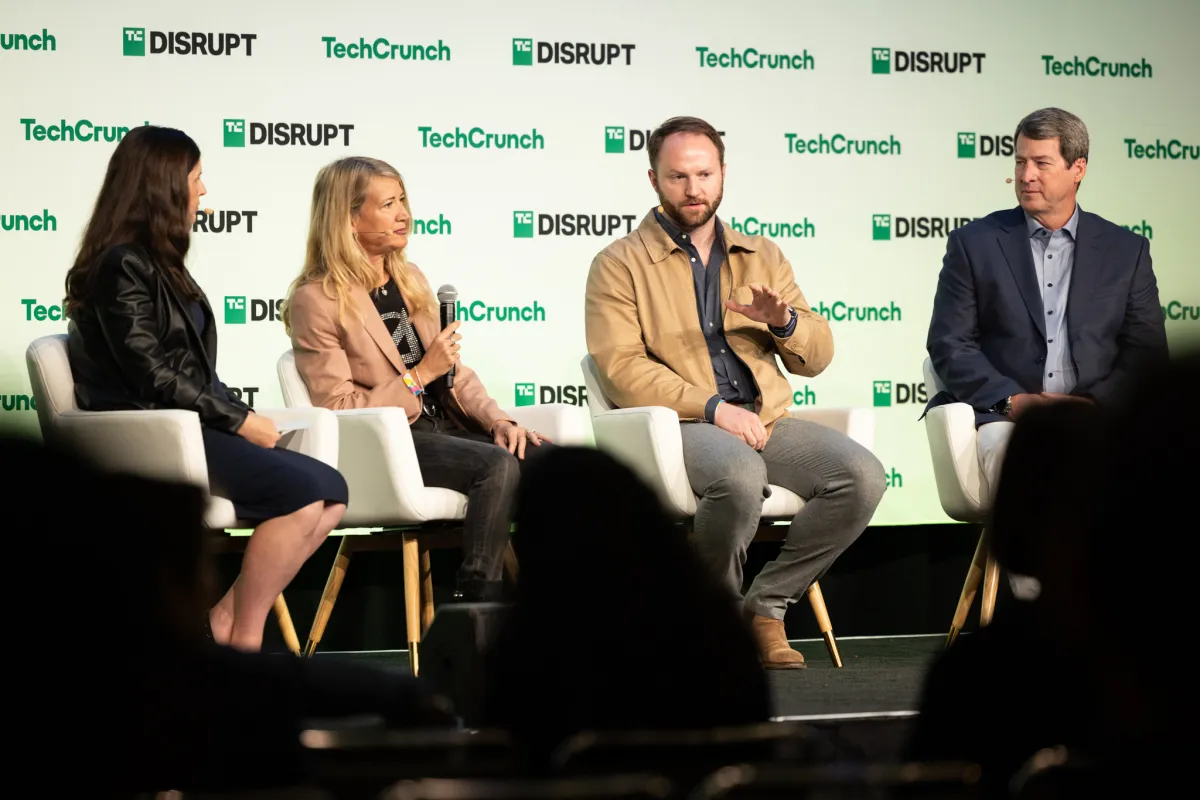
In the tasting room at Steven Smith Teamaker, the ambience is hushed, the color scheme is a soothing mint green and the design is a cross between genteel minimalism and industrial chic. A huge window behind the bar provides a glimpse of the production floor, where teamakers produce artisanal blends with names like Red Nectar, Ode to Whiskey and Dandy Detox.
The café, at 110 S.E. Washington St., is tucked in among the warehouses of Portland’s Central Eastside, an oasis of serenity that belies a hard truth: Steven Smith Teamaker has spent months caught in the crossfire of a bruising international trade war.
But Darren Marshall, the teamaker’s CEO, has landed on a tried-and-true strategy to reassure his employees as uncertainty and anxiety grip the American workforce: communication, communication and more communication. At town hall meetings, at their desks and in his office.
So far, it seems to be working.
Steven Smith Teamaker is among the winners of The Oregonian/OregonLive’s annual Top Workplaces competition. Energage, The Oregonian/OregonLive’s research partner, surveyed tens of thousands of workers in the Portland region about job satisfaction and then selected and ranked the top companies based on those responses.
In the survey, Smith employees offered lavish praise when asked about their jobs.
“Smith Tea offers an incredibly positive work environment,” one wrote. “I also feel very supported and respected by coworkers and management.”
“This job allows me to be myself,” another employee responded, “while learning and growing my knowledge of not only tea culture, but Smith teas specifically.”
This year’s survey coincided with an economic rollercoaster in the early months of 2025. American workers have been buffeted by rising tariffs, massive layoffs and higher prices across industries. The Budget Lab at Yale has predicted that the unemployment rate will rise from 4.2% to 4.7% which reflects job losses for a half-million people. Openings for factory jobs fell by 100,000 in the first half of the year. The United Parcel Service alone expects to eliminate 20,000 jobs this year due in part to the increased use of automation technology.
“The last six months have been the toughest of my time at Smith, and maybe of my career,” Marshall. “The instability in our country creates an instability with our people.”
Smith imports 300 ingredients from 30 countries, including Japan, China, India, Sri Lanka and Egypt, which have been among the fattest targets in this year’s trade war. Marshall predicted the company will face an overall increase of 24% on import costs. But rather than cutting payroll to balance the books, the company plans to raise prices 5% to 10%.
The beginning of the COVID-19 pandemic in 2020 provided Marshall and his management team with a blueprint for the current crisis. The company lost 70% of its business in the early months of 2020, but rebounded to end the year with double-digit growth. No one was laid off. Communicating early and often with his employees was critical.
Marshall now hosts a town hall every month to update employees on the state of the business, answer their questions and hear their concerns. He also makes a consistent effort to connect with employees individually as he makes the rounds each day, encouraging a sense of stability and optimism. It helps that the company has continued hiring – his payroll grew from 86 people to 100 people in the first six months of the year.
“Yes,” he said, “the world around us is in chaos, but we try to create an environment that insulates people from that.”
Jason Wingard, a professor at Harvard and an expert in leadership development, has warned companies that if they don’t adapt to shield their workforce from the churning economy, they may face a painful spiral of low morale, burnout, anxiety and a reduction in productivity.
“This is an unprecedented time in history,” Wingard wrote recently in Forbes. “More change is inevitable in the coming months. Leaders who fail to act will find themselves at a severe disadvantage.”
Lurching markets have also changed the steel industry. On June 4, the Trump administration doubled tariffs on most imports to encourage the production of domestic steel. Economists have predicted that American steel producers may boost hiring to meet an uptick in domestic sales. But those gains could be offset by job losses in related industries that rely on steel, such as construction, according to an analysis by the Greenberg Center for Geoeconomic Studies at the Council on Foreign Relations.
SteelFab, a fabricator with offices in Wilsonville and a plant in Tangent, has fared well so far. Rather than cutting jobs, the company has broadened its reach on the West Coast, competing for sales in Los Angeles and other points south.
Justin Gilbert, president of SteelFab’s Oregon division, is sticking with a simple message in quarterly town halls. Over the summer, SteelFab enjoyed a robust six-month backlog on orders. Reminding employees of SteelFab’s enviable position is a motivator, Gilbert said.
“Because there are times where they’re working overtime to hit a ship date, and if you can explain to them why and what happened, they’re much more excited to go to work on Saturday than if they have no clue,” he added.
“If you explain to them, ‘Hey, this is coming, here’s why, here’s what we’re doing about it,’ then they can go home to their family and explain the same thing.”
Sometimes, company leaders say too much information can make life unnecessarily hard for workers. Another winner in this year’s Top Workplaces survey is Blue Marble, an Ashland maker of math and science toys and games. Blue Marble CEO Jared Wolfson is selective in what he shares with his staff. His message is simple: No one can predict what tomorrow will bring. Don’t worry about what you can’t control. Focus instead on high-quality work every day.
“In some cases, when you overshare,” Wolfson said, “it makes people feel actually less comfortable, because they feel more concerned about things that maybe in some cases, they wouldn’t even need to worry about.”



